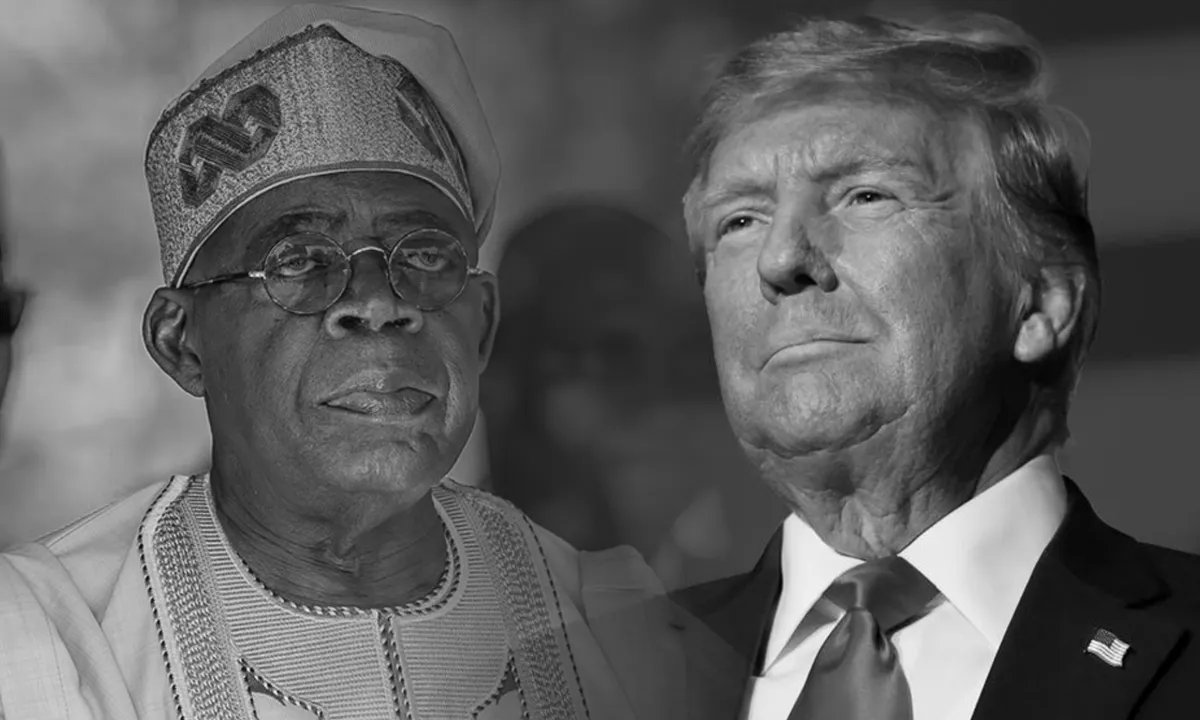
U.S. Visa Ban 2025: Nigerians Shocked as America Targets 25 African Nations—Here’s What We Know

A wave of panic and political tension is spreading across Nigeria and 24 other African countries following reports that the United States is preparing to enforce a sweeping visa restriction policy.
The striking visual, posted on June 15, 2025, has triggered immediate speculation over what appears to be a major diplomatic earthquake.
While official U.S. government sources have yet to confirm the full scope of the policy, a Washington Post report cited in the post suggests that the United States is considering a visa ban that could affect millions of potential travelers from across Africa.
For Nigerians, this has ignited fresh outrage, confusion, and concern—particularly given the country’s long history of migration to the U.S. for education, tourism, and business.
Social media platforms are in uproar. Popular X users like @ThatTimboy described the potential ban as “disgraceful,” while @Gorilla23mp wrote, “Once again, Africa is being punished for the failures of its leaders.” In contrast, @DrKalu_PhD called for the ban to include Nigerian politicians and their families, stating, “Let them feel what the ordinary Nigerian faces every day.”
This potential visa crackdown echoes Trump-era immigration policies that disproportionately targeted African and Middle Eastern countries. During his previous administration, Trump had cited concerns about “terrorist infiltration” and “passport fraud” as justification for travel bans affecting countries like Chad, Somalia, and Sudan. A 2025 BBC report noted that these renewed restrictions are being pushed again, this time under the guise of curbing visa overstays and enhancing national security.
Though Nigeria is not explicitly listed in the original document, insider reports suggest the country’s inclusion stems from a mix of high migration volume, persistent regional insecurity—especially from Boko Haram—and allegations of lax passport verification systems.
Business Insider Africa, in a November 2024 analysis, revealed that countries like Chad had a staggering 49.54% U.S. visa overstay rate. Similar metrics could now be working against Nigeria.
Historically, Nigeria has held a complex relationship with the United States—one marked by cooperation, suspicion, and confrontation.
A 2025 Wikipedia entry points out that while the two nations have shared economic interests, especially in oil, their diplomatic ties have frayed repeatedly over military accountability and human rights issues.
The mid-1970s saw tensions explode following the assassination of Nigerian Head of State Murtala Muhammed, prompting anti-American protests. Despite this, high-profile moments like President Jimmy Carter’s 1978 visit to Lagos briefly revived goodwill.
But now, the $10 billion trade partnership between both countries may be under stress again.
The proposed ban could have immediate consequences—not just for tourism, but for thousands of students currently applying for or renewing F1 student visas. One user, @DestinyIfe_, tweeted, “My U.S. visa interview has been pending for months. This ban could destroy everything I’ve worked for.”
The African Union has already expressed concern, warning in a press release that the visa ban could have a “devastating impact on educational exchange, international diplomacy, and African economic growth.”
Meanwhile, public opinion is sharply divided. While critics view the move as discriminatory and short-sighted, others see it as a necessary wake-up call.
“Maybe if our leaders can’t travel to enjoy U.S. healthcare and education, they’ll finally fix Nigeria,” tweeted @parodymil. Another user, @moses1unegbu, pleaded for humanitarian exceptions, saying, “I have family waiting for emergency care abroad. This is life and death.”
What’s next? If the ban is officially implemented, Nigeria could be forced to pivot diplomatically, strengthening alliances with China, the EU, or the UAE. Domestically, the pressure may mount for the Tinubu administration to address America’s key concerns—namely national security, corruption, and documentation fraud.
For now, uncertainty reigns. Nigerians are being urged to monitor updates from the U.S. State Department and prepare for possible disruptions. As conversations continue to unfold on X and in the halls of government, one thing is certain—the visa ban 2025 could reshape African-American relations for years to come.
Stay with BusterBlog as we bring you the latest updates on this developing story.

